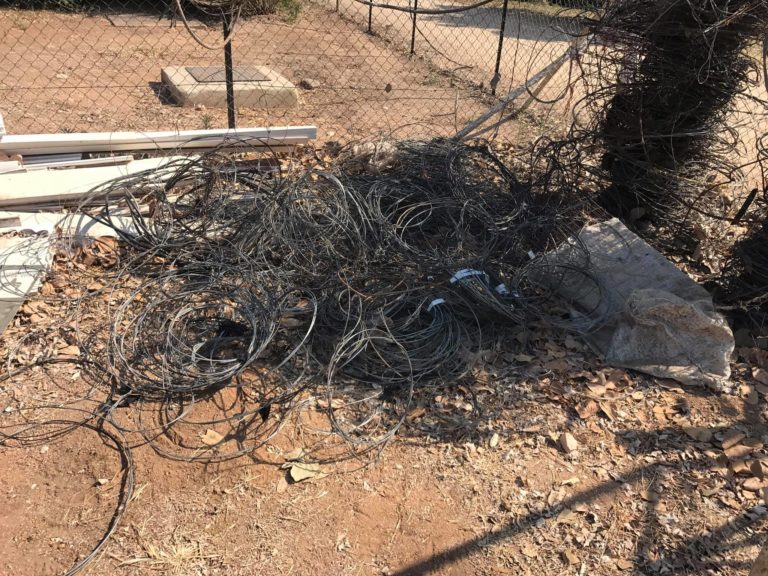SANParks have reportedly seen an increase in poachers laying down snares in the Kruger National Park. It is suspected that these are being used to trap animals for illegal bushmeat trade.
These snares are loops of wire which are hung from trees so that they can catch animals as they walk below. The snares tighten around the animal as it tries to free itself and traps it. Some of the stronger animals caught are able to pull themselves free but are then stuck with the snare around their neck. These snares often don’t immediately kill the animal but rather cause incredible pain until the animal is too weak and dies, or is killed by a predator.

Pile of snares found along the western boundary of the park over one weekend. SANParks/Facebook
SANParks believe these snares are put down by a syndicate involved in the bushmeat trade, as they collect significant numbers of snares. They have recorded up to 200 collected from a small area, according to Isaac Phaahla, Marketing and Communications general manager for Kruger National Park. The Park also found antelope corpses trapped in snares, which they say indicate that these are set by an organised group rather than individuals using the traps for subsistence.
‘We have seen an increase and have intensified our operations in the hotspots,’ said Phaala. ‘We have regular patrols and operations to remove the snares on a daily basis, it is the core duties of our Rangers Corps,’ said Phaala. ‘We also have outreach educational programs to communities and media campaigns.’
How can you help?
Visitors in the parks can help by reporting snared animals to the park on Kruger National Park Emergency Hotline 0137354325 / 0137350197 or 0768019679.
Image source: SANParks/ Facebook
You may also like
Related Posts
China’s National Health Commission has published a list of controversial coronavirus treatments that have animal...
read more
Warmer sea temperatures in the summer months, especially in February, were recorded and are believed...
read more
The latest report indexing the world's happiest countries has highlighted the important role of...
read more